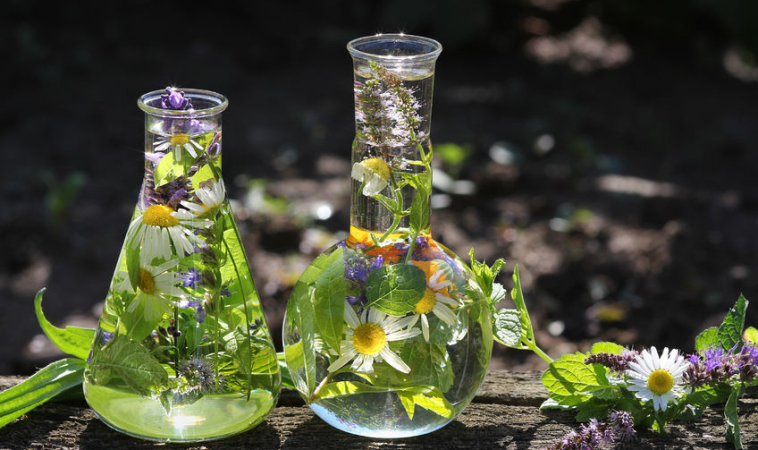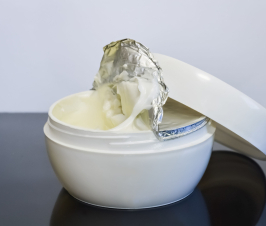Dr Paul Theriault, ND
Recently, a post declaring that Homeopathy had been made illegal by the FDA has been circulating on social media. Written by Dr. Mercola, the article headline “All Homeopathic Products Now Illegal?” details recent changes being circulated by the FDA for comment. But in order to understand the changes, we must understand Homeopathic regulation in the United States.
Homeopathics in the United States are regulated as Drugs by the FDA
Unlike in most countries, Homeopathics in the United States are regulated as Drugs by the FDA. This was accomplished by Royal Copeland, scion of a long line of Homeopaths, who was the Senator from New York from 1923-38. He was instrumental in the authorship of the Food, Drug and Cosmetic act, making specific provisions for the regulation of Homeopathic remedies, and making official the Homeopathic Pharmacopoeia Convention of the United States (HPCUS), begun in 1897 by the American Institute of Homeopathy. Since then, Homeopathic remedies and pharmacies have been federally regulated, in their own separate legal category.
Homeopathic Pharmacopoeia Convention of the United States (HPCUS)
Approval of Homeopathic drugs is now dependent on the creation of a monograph and it’s inclusion in the HPCUS. The HCPUS requires the efficacy of the remedy to be established through either clinical verification or through 2 double blinded trials. Substances in use prior to 1962 are also accepted, grandfathered into the current regulatory process. This process is specifically reflective of the type of knowledge generation process used in Homeopathic therapy. It is uniquely well suited among regulatory regimes to allow for approval of new remedies, and their safe production.This process also protects the public against adulteration and misbranding of regulated products.
This approval is subject to the FDA’s nonprescription drug review, but it has not generally made this an issue.
This regime was designed for the approval of single Homeopathic remedies. These remedies generally make no health claims, being known through homeopathic clinical data, provings, and texts designed to impart this knowledge to both health practitioners and laypeople. Recently, a large number of companies have begun marketing complex homeopathics, products made from multiple remedies, and making health claims for them, as well as specifically marketing them to the public.
Actual Press Release from the FDA Addresses Marketing Claims
It is this making of claims and marketing that the FDA is taking issue with, as the actual press release from the FDA shows, “In recent years, we’ve seen a large uptick in products labeled as homeopathic that are being marketed for a wide array of diseases and conditions, from the common cold to cancer. In many cases, people may be placing their trust and money in therapies that may bring little to no benefit in combating serious ailments, or worse – that may cause significant and even irreparable harm because the products are poorly manufactured, or contain active ingredients that aren’t adequately tested or disclosed to patients.”
The FDA has stated its own priorities in enforcement:
- products with reported safety concerns;
- products that contain or claim to contain ingredients associated with potentially significant safety concerns;
- products for routes of administration other than oral and topical;
- products intended to be used for the prevention or treatment of serious and/or life-threatening diseases and conditions;
- products for vulnerable populations; and
- products that do not meet standards of quality, strength or purity as required under the law.
Emphases Dictated by Recent Events and Trends
These emphases have been dictated by a few recent events and trends. A recent incident was reported in several media outlets of seizures in infants using several varieties of over the counter teething gels. These gels all contained belladonna at homeopathic ultradilutions, which should not have caused these symptoms. Some contamination of these products may have occurred, but in any case, they were recalled and similar incidents have yet to recur. Another factor playing into this increased attention is the increasing popularity of Homeoprophylaxis. Homeoprophylaxis, the practice of using Homeopathic remedies to reduce susceptibility and severity of diseases. With increased emphasis on enforcement of vaccine mandates, options perceived as offering alternatives to vaccine mandates are coming under increased scrutiny. This has led to the suggestion the FDA may further restrict access to nosodes. Already restricted to people trained in Homeopathy by most pharmacies, the possibility remains that the FDA may further restrict these remedies.
Homeopathy is a Unique System of Medicine
Homeopathy is a unique system of medicine, with its own unique philosophy, treatment principles, technologies, and ideas about health and illness. The FDA has regulated the manufacture of single Homeopathics well for nearly a century. However, the proliferation of complex remedies and remedies marketed directly to the public under that legal framework raises warranted concerns whether the public is being adequately protected under the current legislation. It is entirely reasonable to demand a high standard of evidence for products making health claims, and indeed the FTC was not unjustified in taking a more stringent approach towards enforcing standards on health claims.
Current Standards of Approval Applied to Homeopathics is Ludicrous
However, applying the same standards to homeopathics as it applies towards the approval of new pharmaceutical drugs is ludicrous. Homeopathy is incredibly safe, with events such as the teething gel incident incredibly rare. By it’s very nature it is a non toxic therapy, one capable of healing patients in desperate circumstances no other branch of medicine can help. Homeopathy, especially the manufacture of single remedies, is non proprietary. Any pharmacy can make any remedy merely by finding a sample of the original material. Homeopathic pharmacy has slim margins, and does not generate the tens of billions of profit allopathic pharmacy does. Enforcing identical standards with the approval of allopathic drugs would be both financially impossible, and extremely difficult, given the research issues inherent to Homeopathy. Furthermore, in an effort to restrict the usage of Homeoprophylaxis, restricting nosodes would deprive Americans of an extremely useful group of medicines, with enormous uses outside of Homeoprophylaxis.
FDA Must Ensure Homeopathy is Regulated in an Appropriate Way
The FDA does have a legitimate purpose to regulate the manufacture and the advertising of medicinal substances. In doing so, it must however ensure Homeopathy is regulated in an appropriate way. The regulation of health claims on homeopathic products marketed directly to the public, as well as their safety, may require changes to current legislation, and perhaps regulating these products in a framework similar to the regulation of dietary supplements. But the current system of regulation of single homeopathic remedies is entirely appropriate.
Public is Urged to Contact Their Elected Officials and Participate in the FDA Comment Process, Which is Open to the Public
I would urge any Americans concerned about this process to both contact their elected federal representative, and to participate in the FDA comment process, open to the public. Describe your experiences with Homeopathy, how its availability has been of great help to either your patient’s health, or your own, and urge them towards appropriate regulation for this incredibly safe therapy.
 Paul Theriault, ND, graduated from the Canadian College of Naturopathic Medicine (CCNM) in 2010. He maintains a practice in Calgary that is dedicated to chronic diseases, elimination of blockages to healing, digestive problems, and autism. He uses homeopathy, constitutional hydrotherapy, drainage, and auricular acupuncture as his main tools. Dr Theriault is the author of one book about triturated remedies in homeopathy (A New Era: Homeopathy and the Human Spirit), and a second book systematizing the animal remedies in homeopathy (The Table of Animals). His websites include drpaultheriault.com and tableofanimals.com.
Paul Theriault, ND, graduated from the Canadian College of Naturopathic Medicine (CCNM) in 2010. He maintains a practice in Calgary that is dedicated to chronic diseases, elimination of blockages to healing, digestive problems, and autism. He uses homeopathy, constitutional hydrotherapy, drainage, and auricular acupuncture as his main tools. Dr Theriault is the author of one book about triturated remedies in homeopathy (A New Era: Homeopathy and the Human Spirit), and a second book systematizing the animal remedies in homeopathy (The Table of Animals). His websites include drpaultheriault.com and tableofanimals.com.


















All your Homeopathic articles have been fascinating and scientific , being a Pure Hahnemannian Homeopathic Physician , I must admit it.